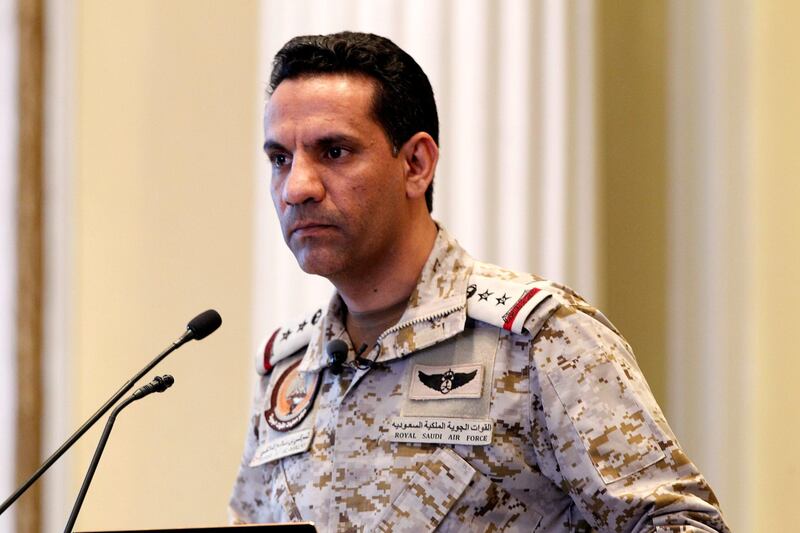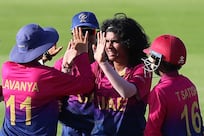The Arab Coalition allied with Yemen's government on Monday criticised United Nations agencies for what is said was biased reports regarding a recent stirike that caused civilian deaths, in areas recently liberated from Houthi rebels.
"The coalition is surprised by the ... biased positions of some reports," coalition spokesman Col Turki Al Malki said, adding that the information was "prejudiced" and based on "rebel stories".
Last Thursday, the coalition said the Houthi rebels had struck a recently liberated village in Al Durayhimi district of Hodeidah province with an Iranian-made ballistic missile, killing a child and injuring dozens of civilians.
The Emirates Red Crescent rushed aid to the village of Al Ghalifqa after the attack, the UAE news agency Wam reported.
Houthis have claimed that the attack was carried out by coalition forces.
Following the incident, several UN agencies reported on an "air strike" in the district. The coalition has denied carrying out an attack in the area.
The UN Security Council had called for an investigation into the strike in northern Yemen that Unicef said killed 27 children.
"We all know that UN bodies are under pressure by the Houthi militias and these reports may have come in response to that pressure," Col Al Malki said. "There is no war without collateral damage," he said.
The area of Al Durayhimi near the strategic Red Sea port of Hodiedah was liberated early on in the first major push towards the town in June.
The coalition intervened in the Yemen conflict in March 2015 at the request of President Abdrabu Mansur Hadi. It has helped the government gain control of large areas of southern Yemen, including the port city of Aden where the government is based after the rebels seized the capital, Sanaa, in September 2014.






